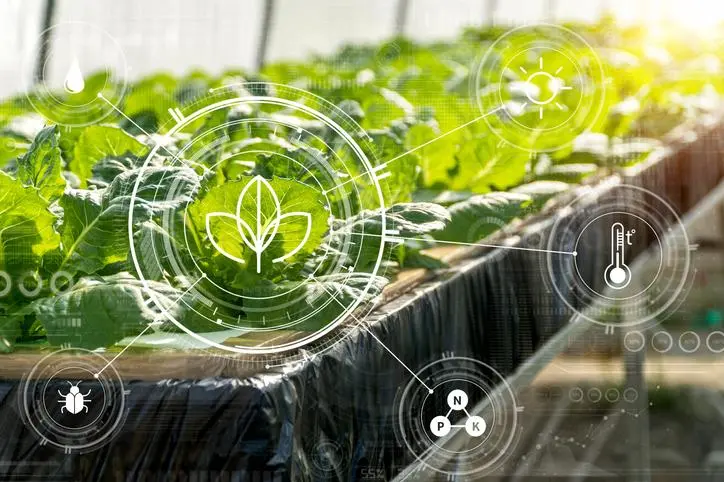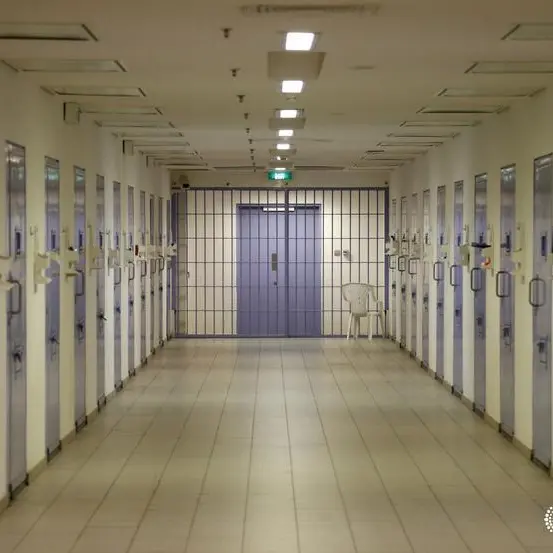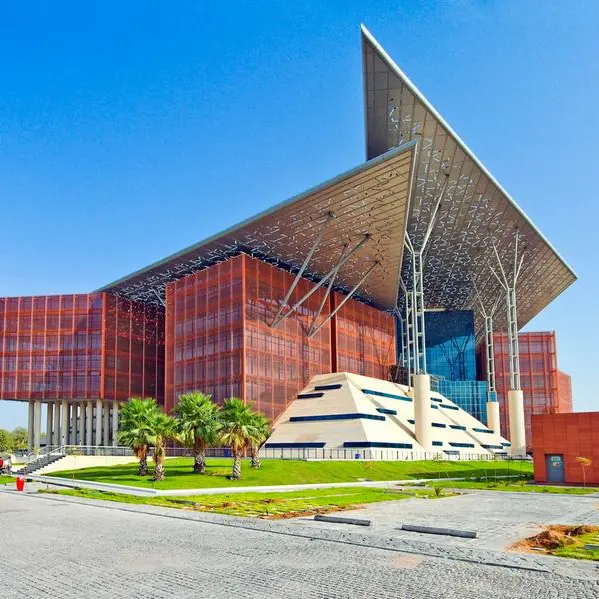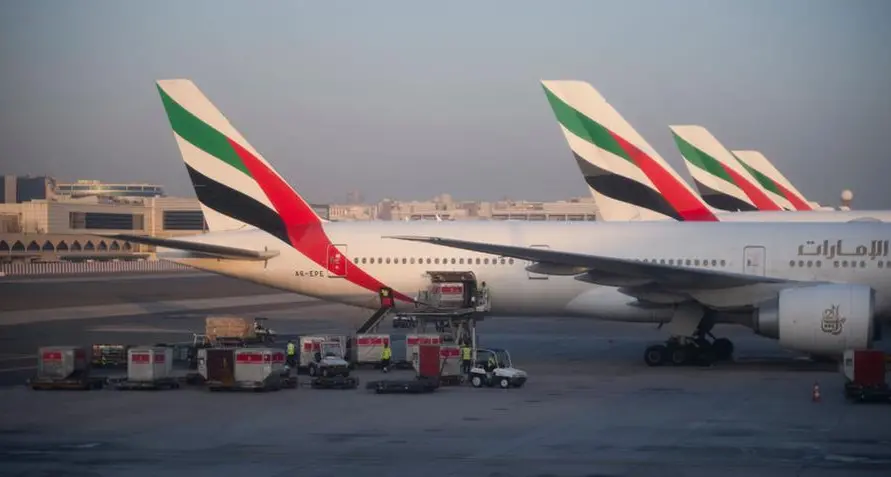PHOTO
ABU DHABI - H.H. Sheikh Mansour bin Zayed Al Nahyan, Deputy Prime Minister, Minister of Presidential Affairs and Chairman of Abu Dhabi Agriculture and Food Safety Authority, ADAFSA, has issued eight new regulations targeting organising the practices of farms and food facilities in the emirate of Abu Dhabi.
These regulations come to ensure optimal use of natural resources, achieving sustainability of the agricultural and food sectors and increase the local production.
"The UAE is keen to support the national food security system, in accordance with the highest standards of food safety, so these new regulations and legislations aim to enhance the legislative and oversight role to develop the work system in the agricultural and food sector in the emirate of Abu Dhabi, and to maximise the role of farm and livestock owners as an important and effective national element to promote the food security and biosecurity system," said Sheikh Mansour.
He emphasised that the concept of sustainability is an approach adopted by Abu Dhabi Government to create a diversified knowledge-based economy thus adopting modern developments in various fields.
For his part, Saeed Al Bahri Salem Al Ameri, Director-General of ADAFSA, said, the new regulations would help ADAFSA in formulating plans and launching programmes aimed at increasing agricultural economic returns and improving the income of farmers and livestock breeders.
Being the authority in charge of issuing the licences and permits to undertake all agriculture or food activities, ADAFSA relay on the strength of the legislative system to accelerate growth drivers in both agriculture and food sectors, tighten control over food production, processing and handling throughout the food chain, and control and inspect food and agriculture facilities, farms, agricultural inputs, imported and exported food and agricultural items, and food produced in the country and handled in the Emirate.
According to the Law No. 7 of 2019, issued by President His Highness Sheikh Khalifa bin Zayed Al Nahyan, in his capacity as the Ruler of Abu Dhabi, on the establishment of ADAFSA, three new regulations have been issued and amendments were made to five others, to ensure consistency of legislative system with Abu Dhabi Government’s vision and ADAFSA’s efforts to enhance the sustainability of the agricultural sector, including both plant and animal sub-sectors, and increase local production.
The first regulation clarifies the agricultural requirements for Abu Dhabi farms, for which resolution No. 3 of 2020 was issued. It sets general requirements that benefit the farm owner and serve goals pursued by Abu Dhabi Government to ensure sustainable use of natural resources.
This regulation contains special requirements for undertaking agricultural-related activity, such as ways to use irrigation water to preserve this important resource and maximise its use in agricultural production, and the application of modern irrigation systems.
This regulation further sets rules and requirements for using pesticides, fertilizers, soil conditioners, seeds and saplings, as applying the proper practices for using agricultural inputs helps reducing production cost and increasing farm returns.
The second regulation aims at organising the practices within the commercial plant farms in Abu Dhabi, for which resolution No. 4 of 2020 was issued. It is intended to organise the application of the best agricultural practices in commercial farms, to improve local production quality, increase the contribution of crop production to the food security system, and ensure application of biosecurity measures to ensure control plant pests and diseases.
The regulation obliges owners of those farms to obtain a licence from ADAFSA to undertake any farming activity, provided the need to apply the proper agricultural practices while irrigating crops, using fertilizers and pesticides, and storing these materials safely.
It also sets clear requirements to ensure workers’ health and safety within the farm by providing adequate accommodation, living conditions and gears for conducting their work safely.
The regulation also outlined requirements and rules for harvesting and handling agricultural products in commercial farms.
Meanwhile, the third regulation is concerned with the prevention and control of communicable, epidemic and zoonotic and diseases in the Emirate of Abu Dhabi, for which Resolution No. 5 of 2020 was issued. This kind of regualtion becomes particularly important to address increasing prevalence of these diseases due to the greater and ease of animal mobility.
The regulation helps enhancing the biosecurity system in terms of preventing diseases and pathogens, and combating infectious, epidemic and zoonotic diseases, which ensures livestock development as well as food safety. It also covers fish, crustaceans and honeybees, as they need protection against epidemic diseases like other animals.
It also defined responsibilities of livestock owners, veterinarians and laboratory technicians when detecting epidemic diseases. It also outlined ADAFSA’s responsibilities in terms of taking measures to prevent, investigate, monitor and control such diseases, coordinating with Ministry of Climate Change and Environment and other authorities concerned with taking measures necessary to control epidemic and zoonotic diseases in the emirate of Abu Dhabi.
Moreover, Resolution No. 7 of 2020 was issued by Chairman of ADAFSA to enhance Abu Dhabi Government’s support to farm owners and better use of programmess and services offered by ADAFSA to help farmers continue their work and achieve rewarding economic returns, which supports agricultural sustainability and strengthens food security in the emirate.
Additionally, ADAFSA’s Chairman has issued Resolution No. 6 of 2020, containing amendments to regulation No. 6 of 2010 concerning food hygiene throughout the food chain. This regulation aims at keeping abreast of developments took place during this period, to tight control over the food chain and to ensure food safety in the emirate of Abu Dhabi.
Sheikh Mansour issued as well Resolution No. 2 of 2020, containing amendments to regulation No. 2 of 2008 on risk-based approach for the control of imported foods via borders of the emirate of Abu Dhabi.
The new regulation is intended to reduce the burden on food importers without compromising the safety requirements of the imported food, facilitate the flow of food goods into markets, and promote domestic and foreign investment in food industries.
Also, Resolution No. 9 of 2020 was issued to set requirements for issuing fish farming licences (aquaculture) and defines hygiene requirements for animal slaughterhouses and poultry abattoirs, with the aim of standardising control measures in these facilities. The regulation also clarifies other requirements for establishing, running and licencing of small animal production units in farms, to ensure applying biosecurity, animal welfare and the safety of animal-based foods.
The last regulation is concerned with the technical requirements for animal production establishments in the emirate of Abu Dhabi, for which Resolution No. 8 of 2020 was issued. It is intended to organise activities conducted in animal production facilities, ensure the compliance with the hygiene and animal welfare requirements, and increase awareness of the owners and workers about the importance of applying biosecurity measures and its positive impact on the establishment’s activities.
© Copyright Emirates News Agency (WAM) 2020.












